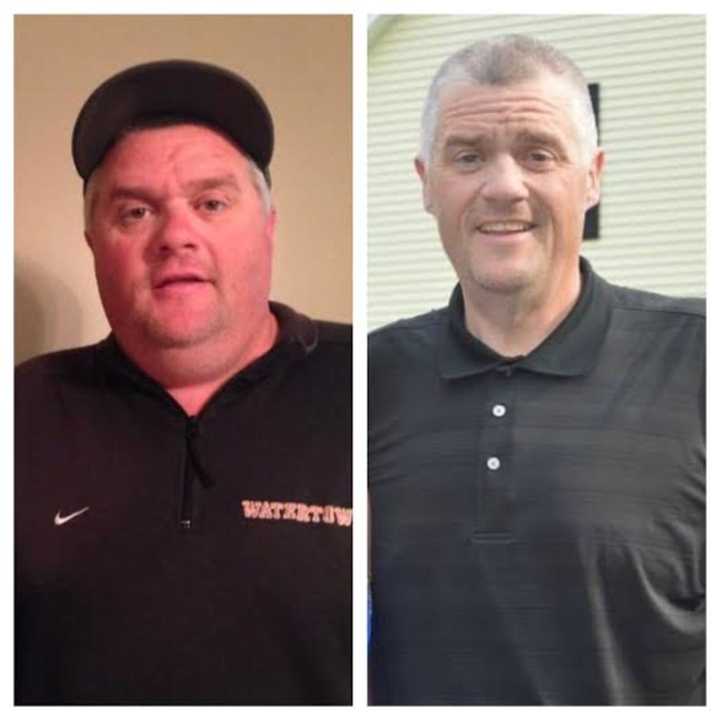Since then, he’s lost more than 125 pounds and travels back to Danbury, more than 800 miles from his home, for follow-up appointments with his bariatric surgeon Dr. Keith A. Zuccala, the Carmen Lucia and Peter Buck Chair in Surgical Oncology and Chairman for the Department of Surgery at Western Connecticut Health Network.
The 26-year police veteran of the City of Danbury Police Department and former resident of Watertown, says, “Life is so much better for me now because I feel good.”
Lopes battled with his weight off and on over the years that eventually led to other health problems. “I developed high blood pressure, acid reflux, and sleep apnea,” said Lopes. “I had to use a CPAP machine at night for the sleep apnea. I was not happy with myself; I was too heavy.
“I tried every fad diet out there and I would lose 20 to 40 pounds, but then I’d gain it all back again,” said Lopes. “I became so frustrated because I couldn’t keep it off. My weight-related health issues were a huge motivator in my decision to look into weight loss surgery.”
Lopes did the research and attended several weight loss surgery programs to learn about weight loss surgery options. “When I attended the Danbury Hospital Weight Loss Surgery Meet and Greet, they just ‘grabbed me’ by their attitude and professionalism,” said Lopes. “They were far superior compared to other sessions I attended.”
“I was also impressed with the comprehensive, personalized weight loss surgery options and support programs available before, during and after surgery,” added Lopes.
Following an extensive health evaluation and risk assessment, both Lopes and Dr. Zuccala agreed that a laparoscopic sleeve gastrectomy was a good weight loss surgery option. The procedure uses smaller incisions which lead to minimal scarring, less pain, and a faster recovery to allow the patient to return to their daily activities more quickly.
According to Dr. Zuccala, a laparoscopic sleeve gastrectomy involves removing 90 percent of the stomach and creating a thin tube (or a sleeve-like shape) of the remaining portion resulting in weight loss by two ways. First, the size of the stomach is significantly reduced so that less food can be eaten. Second, the portion of the stomach removed affects the hormones that govern appetite so that patients are often less hungry.
“The laparoscopic sleeve gastrectomy was originally designed as a first step toward gastric bypass for patients with extreme obesity, and for some patients that’s still the case, said Dr. Zuccala.” “However, current studies suggest that this minimally-invasive procedure is also beneficial for other patients because it does not involve malabsorption so the body digests food normally.”
“Last July, Dr. Zuccala performed my gastric sleeve surgery at Danbury Hospital,” said Lopes. My pre-surgery weight was 323 pounds. Now, a year later, I weigh 198 pounds and I feel great.”
When asked why Lopes drives more than 800 miles to Danbury Hospital for his follow-up appointments when he could be referred to a Weight Loss Surgery Center closer to home he firmly replied, “I will never stop doing it; I refuse to. The support and security I need is always just a phone call away. If it wasn’t for Dr. Zuccala and the staff at The Center for Weight Loss Surgery at Danbury Hospital, I would not have had the motivation to do this. To me, coming back here is my reward; it’s my life vest.”

